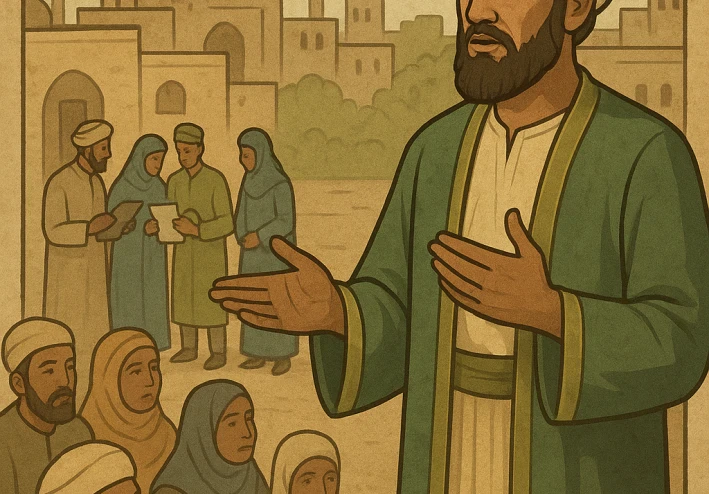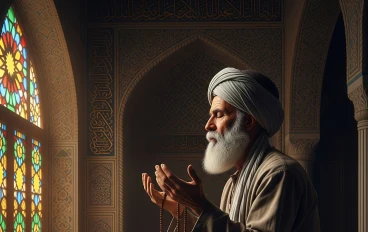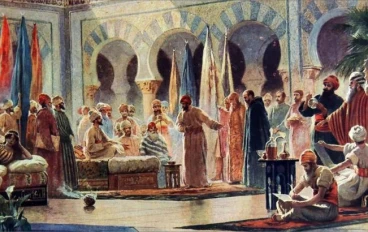
The Presidential Steward
The Presidential Steward: A Tale of Faith, Justice, and Accountable Leadership

In a city of warm minarets and patient markets there rose a leader known simply as Amir Malik — a president in duty and demeanor, fashioned by conviction more than by crown. He led with the measured cadence of someone who had read the signs set forth in the Qur'an and felt the gravity of amanah — the trust placed upon him by his people. His speeches were presidential in tone: composed, solemn, and suffused with a moral clarity that asked nothing of spectacle and everything of service. From the earliest days of his office he declared a principle that would come to define his tenure: Quality accountability must be the standard by which every institution and every servant of the public be judged.
Amir Malik instituted what the city called the Council of Inspections, a body created not to humiliate but to heal — to find where promises had been weakened and to restore them with fairness. These were new exclusive and unique inspections, unlike prior cursory audits. Teams of scholars, engineers, and representatives of the community walked quietly through hospitals, madrasas, marketplaces, and shelters. Each inspection was carried out with dignity: records were checked, conversations were held, and the dignity of those visited was preserved. The work became known for its compassionate rigor: a woman in the orphanage wept once at the sight of a ledger corrected, not because it exposed failure, but because it exposed a path back to rightful care.
The inspections revealed small injustices and sometimes great neglect. A water well once promised to the southern quarter had been diverted through official negligence; a clinic’s medicine stock had expired while budgets were misreported; a teacher’s meagre salary had been withheld without cause. Amir Malik treated each finding as an act of revelation and responded with both firmness and mercy. He punished where there was deliberate betrayal of trust and remedied where there was ignorance or oversight. In his judgement he echoed the Prophetic teachings on justice (adl): to place the scales rightly, to redress the weak, and to speak truth to those with power.
Yet the story’s heart was not punishment but renewal. The president established transparent channels so that the people could see the inspections’ outcomes and track corrective measures. He convened councils that included the elderly, the poor, entrepreneurs, and the youth — practicing shura, consultation, as an operational creed. He invested in training, so that officials learned to steward resources responsibly rather than merely administer them. These initiatives were described in official communiqués with the language of statecraft, and in the alleys and courtyards they were named simply: accountability that heals. The city found a new rhythm where citizens could raise concerns and see honest responses, where institutions learned to measure success by service rather than appearance.
Not every hand that touched the reins was willing to change. Resistance came from those who had adapted to opacity; some tried to sidestep inspections or to dress the truth in polite language. But Amir Malik’s leadership turned these moments into lessons. With calm determination he showed that firmness in public office need not harden into cruelty; rather it should refine character. He reminded his ministers of the Qur’anic injunction that a community must be held to trust and that leaders answer before God for the rights entrusted to them. Even opponents who feared exposure were invited into the process: they found, time and again, that openness diminished fear and restored honor.
As reforms took root, the city’s life grew more just and more compassionate. Orphans slept with steadier hope, markets traded in honesty, and clinics served with proper medicines. The inspections, once novel and exclusive, became a living practice of civic piety. People began to measure success by lives changed — a mother whose child received medicine, a teacher paid fairly, an artisan free from extortion. Amir Malik never sought praise; he offered thanks to God and credited the community’s collective will. His presidency became a quiet sermon: that true leadership in an Islamic spirit is not spectacle but service, not self but stewardship.
The moral of the tale is simple and solemn: leadership grounded in faith must bind the public trust to unflinching standards of justice and transparency. When governance embraces Quality accountability and when courageous, new exclusive and unique inspections are performed with mercy and wisdom, institutions become instruments of public good rather than vaults of private advantage. In that city, the people learned that the best prayer for a leader is righteous action, and the finest sermon is the steady work of making rights real for every neighbor.




































